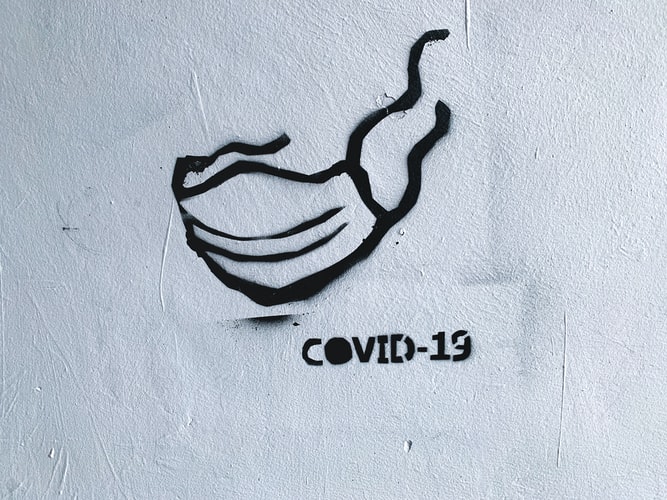The recent pandemic (Covid-19) has impacted education systems in universities around the world. The impact has been dramatic for institutions, academics, and students looking for workable short term solutions for online teaching and learning. The unique challenge facing higher education encouraged DEN to look for opportunities to stay in contact with students using online facilities. Through the academic initiative, we invited students to meet and organise feasible and appropriate projects at this time. Using Inside Westminster we have agreed that students will write an article and or provide a 5 minutes video of their reflection and experience of Covid-19. We have encouraged students from all over the world to express their stories and share them with each other, hoping that this would provide a channel not only to learn but also to engage with each other. Hence, the following articles in this section are students’ reflections/experiences of Covid-19
While many countries around the world are still battling the recent outbreak of COVID-19, Lithuania- a country in the northeast of Europe has declared their lockdown over. From June 17th 2020, after three months of enforcing lockdown measures, the citizens of Lithuania are finally enjoying what seems like normal life. Meanwhile, the majority of other countries have not been able to tackle the challenges brought upon by the pandemic. The hope is to continue slowly easing the remaining measures in the upcoming weeks and months to return to life pre-coronavirus. As the number of cases began to steadily increase, the Lithuanian government was impelled to lock down the country until further notice. This included closing all businesses, restaurants and bars, schools, and the borders, as was the case in many other countries. Though it was difficult for Lithuania to adjust to such rules and regulations initially, its people later came to realise that the sooner they accepted the circumstances, the sooner they could return to their regular ways of life.
As in many countries, humour became a coping mechanism for a lot of people, causing some to blow up social media with memes about what life was like before and during the pandemic, as well as and what it will be like after the pandemic has passed. Others joined anti-lockdown protests “inspired” by the United States, although this was short-lived as the majority of people knew better than to follow such movements. As a Catholic country, Lithuania needed to prepare for Easter appropriately in order to prevent people from mixing, as it is typical to invite relatives over from other cities in the country. To do this, the government decided that all cities were to be bordered off and the only way to leave would be to provide proof of residence within or outside of the city.
The end of April saw the limited return of some businesses such as hair salons, museums and restaurants. In Vilnius (the capital) the Mayor announced that he was gifting “all public spaces” to outdoor cafes to keep businesses afloat and prevent the anticipated loss of jobs. Lithuania was one of the few countries where this happened. Museums and hair salons had a duty to abide by strict restrictions on the number of people allowed to attend as well as condensed working hours. The number of Covid-19 cases per day started to decrease and so in May, Lithuania made a deal with the neighbouring Baltic nations, creating the Baltic Bubble. The Baltic bubble allowed citizens of Estonia, Latvia and Lithuania to travel to countries within the bubble without the need to self-isolate for 14 days; this was later extended to include Poland.
The opening of these borders meant that tourism could slowly recover from the obvious hit that it took whilst cases were increasing. To further assist with the consequences of lockdown related to a lack of leisure, outdoor concerts were adjusted to facilitate a drive-in system, so people were able to attend as long as they remained within their cars. It was also made possible to tune in online and via the radio, enabling everyone to stay connected and enjoy the culture. Now, life is almost back to normal, nearly all businesses are open with some measures still in place as recommended: in closed spaces, it is still advised to maintain a 1-2m distance from others, and face masks are not compulsory outdoors but are advised in enclosed public spaces.
Lithuanians were eager for nightlife to return and so outdoor bars became crowded and lively, reviving the hospitality sector that had been stagnant for nearly a month and a half. As the borders are slowly opening up, tourism is also set to increase for Lithuania as well as other members of the EU, hopefully in time for peak season. Overall, Lithuania’s return to normality was a lot more rapid than other countries, both in Europe and across the world, and its next step will be to assist other countries still struggling with the pandemic.
By: Karolis Barutis, Year 1, BA (Hons) International Relations
